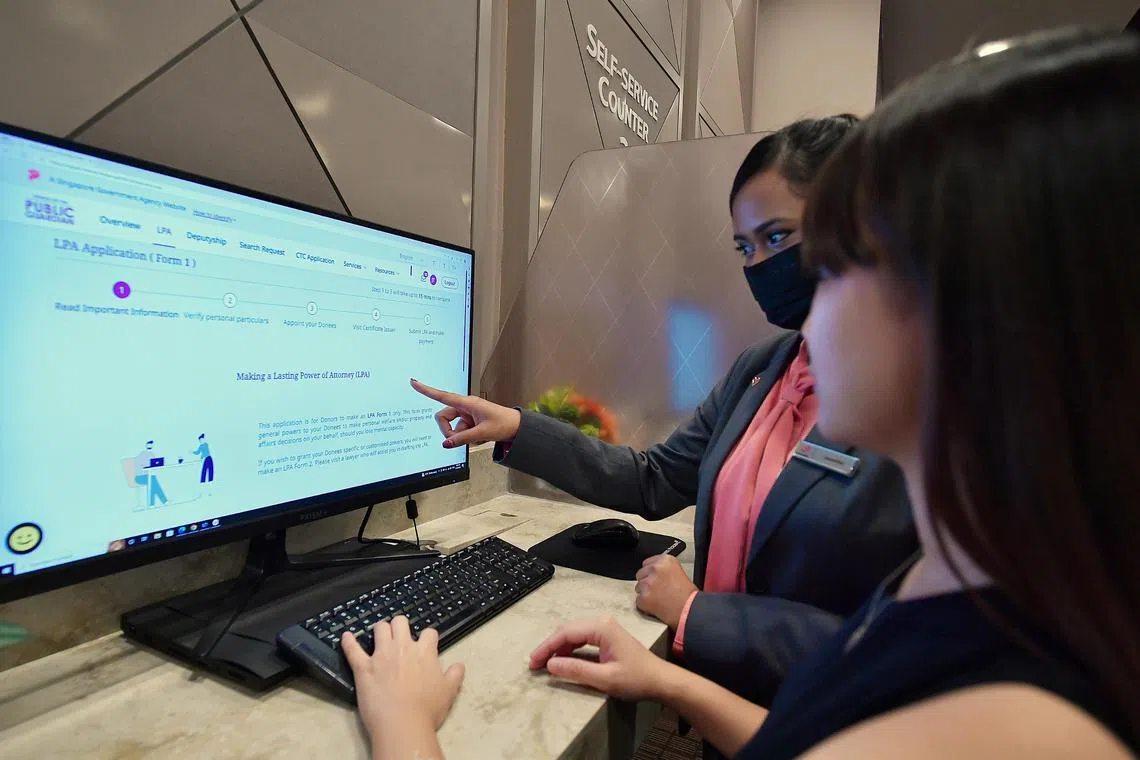Safeguards in place for lasting power of attorney process: MSF
Sign up now: Get ST's newsletters delivered to your inbox

Senior Parliamentary Secretary for Social and Family Development Eric Chua said certificate issuers play a key role in safeguarding the process.
ST PHOTO: DESMOND WEE
Follow topic:
SINGAPORE - Certificate issuers (CIs) play a key role in safeguarding the process of making a lasting power of attorney (LPA) and are not merely rubber-stamping such applications.
Senior Parliamentary Secretary for Social and Family Development Eric Chua said this in Parliament on Tuesday.
He was responding to Mr Saktiandi Supaat (Bishan-Toa Payoh GRC) who had asked if the ministry could consider publishing a more detailed guide on the duties and responsibilities of CIs in the making of LPAs.
An LPA is a legal document that allows a person aged 21 and above to voluntarily appoint another person or multiple people to make decisions and act on his behalf if he loses his mental capacity.
Those who make LPAs are known as donors, while the people they appoint are called donees.
Mr Saktiandi had asked whether current legislation requires a CI to inquire if a donor has previously made a similar legal instrument in a foreign jurisdiction, and if not, whether such a requirement can be added, in view of potential conflicts and legal disputes.
Mr Chua said the Mental Capacity Act and the Mental Capacity Regulations do not require CIs to make such an inquiry.
“We do not expect such scenarios to be common and are mindful to keep the LPA application process simple,” said Mr Chua, adding that the suggestion will be considered when the legislation is next reviewed.
Mr Saktiandi added that there were some concerns that certificate issues were merely an act of rubber-stamping, even though he did not think so.
Mr Chua said a CI does not just rubber-stamp an LPA application, but plays a very key role in the entire process.
A CI has to be a medical practitioner who is accredited by the Public Guardian, or a practising lawyer or a registered psychiatrist, he said.
The CI has to meet the donor in person to make sure the donor is of sound mind, and understands the intent and scope of the LPA.
At the same time, the CI also has to verify that the donor is not induced by fraud or is under any undue pressure to make the LPA, he said.
After all the steps have been made, the donor then digitally signs the LPA in the presence of the CI.
Mr Chua added: “And for this entire process, the CI must keep clear and detailed records of the steps that have been taken in order for him to ascertain the mental capacity of the donor and how he has arrived at this conclusion that the donor has mental capacity.”


